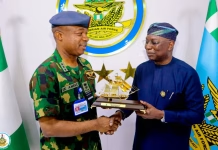
The World Bank Group has approved a $500 million loan to help empower women in Nigeria. This was the second loan approved by the World Bank under new President Bola Tinub. This is match-up funding to the Nigerian Women’s Program originally approved in her $100 million funding on June 27, 2018.
A World Bank statement said, among other things, “The World Bank has approved US$500 million funding for the Scale-up of the Nigerian Women’s Program (NFWP-SU).” It will continue to assist the Nigerian government in improving the livelihoods of women. Women invest in Nigeria.
“The NFWP-SU will help to ensure better economic opportunities for women, which is essential for addressing gender inequality; guaranteeing better education, health, and nutrition outcomes for families; and building women’s and communities’ resilience to climate change.”
The World Bank stressed the need for the government to address issues that inhibit women’s economic empowerment and hinder inclusive, low-carbon, and resilient economic growth.
It noted that women’s empowerment is essential to their ability to build resilience to climate change and, by extension, the resilience of their households and communities.
The World Bank Country Director for Nigeria, Shubham Chaudhuri, was quoted as saying, “We have seen promising outcomes from the parent NFWP which has helped to create economic opportunities for thousands of rural women through the Women Affinity Groups. NFWP’s model is helping to improve livelihood opportunities for women and enhancing their capacity to adapt to climate change and to participate in local administrations for policymaking related to community empowerment.
“Closing the gender gap in key economic sectors could yield gains of between $9.3bn and $22.9bn, we are optimistic that this scale-up will help Nigeria to move closer to bridging this gap.”
Also, the Task Team Leader for Nigeria for Women Project, Michael Ilesanmi, said, “The Program aims to mobilize poor and vulnerable women into different institutions and, using these institutional platforms, link them to markets as well as financial and non-financial services. By participating in women’s affinity groups, project beneficiaries will be able to build social capital and use it to access financial, political and economic capital, leading to social and economic empowerment. leads to ”
The NFWP is implemented in her six states, and she announced that she has provided assistance to over 427,887 members through the formation and strengthening of 20,506 of her women’s affinity groups.
In about two years, these WAGs have saved around 4 billion naira ($8.9 million worth), with a significant percentage of these funds constantly circulating as loans. To date, 835,573 community her members have benefited from her NFWP through various interventions.












